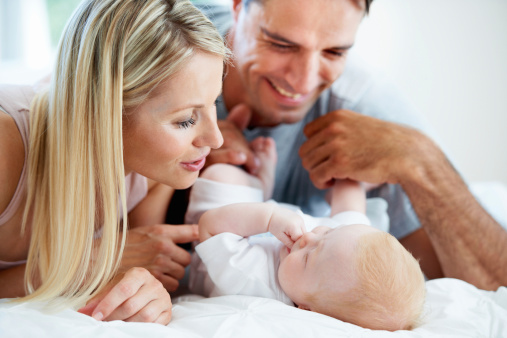
Bonding and Mom’s Mental Health
The importance of the attachment bond between an infant and the primary caregiver, which is often the mother, is well known. Without a secure bond, a child can suffer developmentally and struggle emotionally, mentally and in other ways. While all mothers have the best of intentions, not all are properly equipped to create this important bond with their children. One major obstacle that many women face is mental health. Researchers have shown that a mother’s mental illness can be a barrier to forming a secure attachment bond. Numerous mental illnesses can adversely affect the mother-child attachment, including bipolar disorder, schizophrenia, depression, anxiety disorder, and borderline personality disorder (BPD). A couple of studies focusing on BPD found that mothers with this disorder were less sensitive with their infants than mothers without mental illness. They also found that these infants in response looked away from their mothers more often, appeared dazed and were less responsive. Their attachments to their mothers were found to be disrupted. Depression is a problem that many mothers face after giving birth. When a mother is depressed she may struggle to be caring and loving with her infant. The effects on the child include trouble sleeping, fewer interactions with the mother, delayed development, more crying and colic, and increased passive behaviors. If the mother with depression goes untreated, these problems can continue and change as the infant grows into a child.
Support Can Help
The good news for mothers who struggle to form secure attachments with their babies because of mental illness is that there is help. Recent research found that support from professionals can help these mothers form better attachments. A group of mothers with mental illnesses, many severe, were given specialist care and compared to healthy mothers and mothers with mental illness who received no support. The mothers given the support were filmed interacting with their babies. The professionals then gave the mothers feedback and pointed out what they could do differently to establish a better bond. The mothers receiving this specialized support showed improvement in how they related to their infants. They became more sensitive to the needs of their babies, were more responsive to them, and were more cooperative. In fact, these mothers with severe mental illnesses, after treatment, were found to be just as good at bonding with their babies as healthy mothers. The researchers also saw improvements in the development and health of the babies.
The Keys to Creating Attachment
The importance of attachment between mother, or primary caregiver, and child cannot be overstated. When mental illness disrupts the bond, the results can be devastating for the development of the child. The new research that shows how professional help can turn around a disrupted bond is very promising and demonstrates that any mother can learn to create a secure attachment. For all mothers, healthy or not, there are some important aspects of attachment bonding. The first is to simply be the primary caregiver. It’s also important to be affectionate with your baby. Touching, comforting, smiling, eye contact and other signs of affection are crucial to bonding. Comforting your baby is important in helping him or her feel secure and safe. Respond to distress with warmth and comfort, but not with smothering, which can actually hurt attachment. Responding to every little cry or gurgle is not helpful. Finally, create communication with your infant. Do not let your relationship be dominated by your needs or your baby’s needs. The relationship should be two ways. Work with your moods, but also let your baby initiate interactions. Most importantly of all, if you feel you are struggling, whether you have a mental illness or not, get help. Reach out to your doctor or a family member and get the help you need, for both you and your child.
